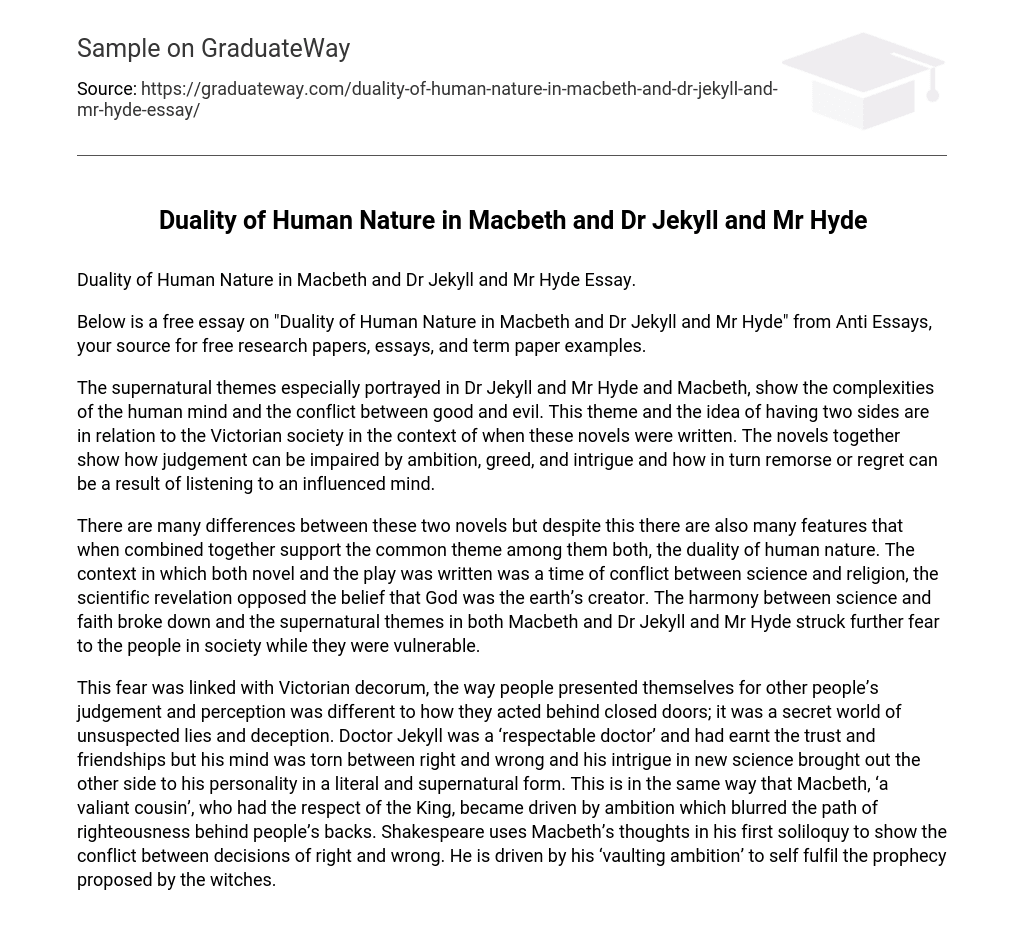Both Dr Jekyll and Mr Hyde and Macbeth utilize supernatural elements to depict the intricacies of the human psyche and the struggle between morality and immorality. These themes, in conjunction with the concept of duality, hold great importance within Victorian society during the time these literary works were composed. The novels explore how aspirations, avarice, and dishonesty can obscure one’s ability to make sound decisions, leading to subsequent sentiments of guilt or sorrow arising from being influenced by a warped mindset.
Although these novels have distinct characteristics, they both revolve around the same concept: the dual nature of humanity. The period in which they were penned witnessed a clash between science and religion, as scientific advancements questioned the existence of a higher power. This discordance between science and faith heightened societal apprehension. The inclusion of supernatural elements in Macbeth and Dr Jekyll and Mr Hyde further heightened this fear during a precarious era.
The fear of Victorian decorum was tied to the way individuals presented themselves in public versus their true behavior in private. This created a hidden world of deceit and dishonesty. Doctor Jekyll, a reputable doctor who had earned trust and friendships, struggled with conflicting morals and a fascination with experimental science. This ultimately manifested as an alternate personality in both a literal and supernatural manner.
In a similar manner, Macbeth, described as ‘a valiant cousin’ who earned the respect of the King, succumbed to ambition and lost sight of his moral compass. Shakespeare illustrates this internal struggle in Macbeth’s first soliloquy, where he grapples with the conflicting options of right and wrong. Driven by his overwhelming ambition, Macbeth seeks to fulfill the witches’ prophecy.





